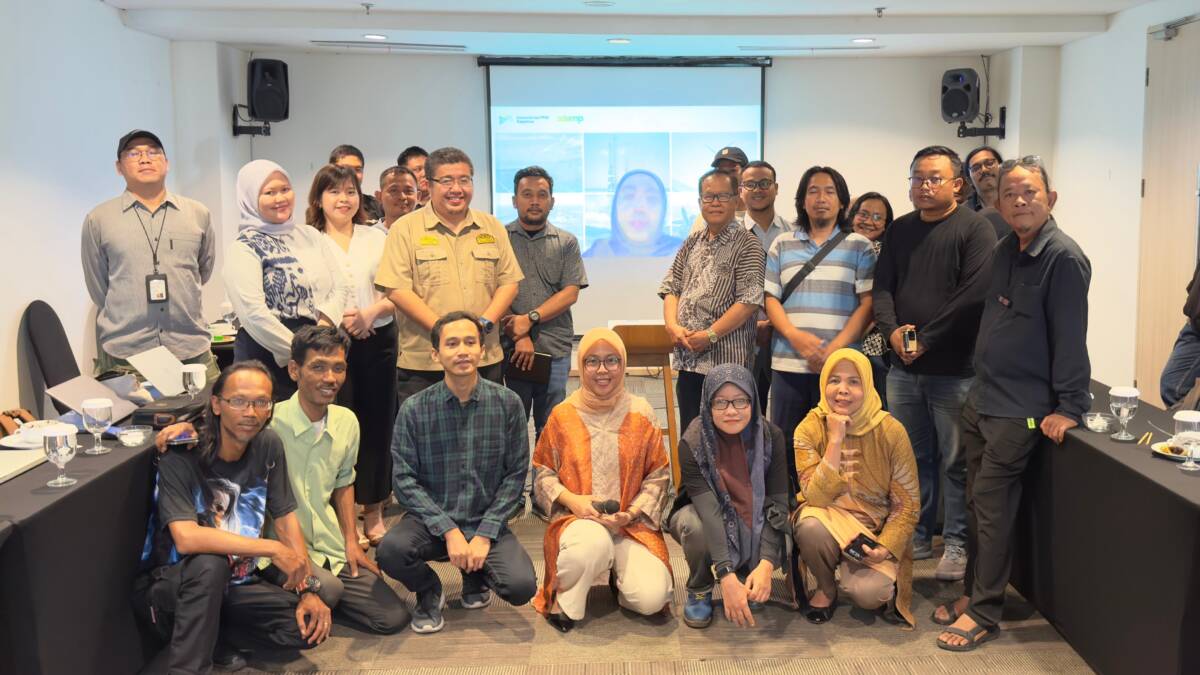Palembang, October 23, 2024 – The inauguration of President Prabowo Subianto and Vice President Gibran Rakabuming Raka on Sunday (20/10/2024) marks a shift in leadership to accelerate the energy transition in Indonesia. As a country committed to keeping the earth’s temperature at 1.5 degrees Celsius, the Institute for Essential Services Reform (IESR) encourages Indonesia to prioritize an equitable energy transition to grow a sustainable economy, especially at the regional level.
IESR believes that the central and local Governments can play their roles in effectively supporting the acceleration of a just energy transition at the local level. Although 33 provinces in Indonesia already have Regional General Energy Plans (RUED), many of these plans should be reviewed as it has been five years since they were released. Not only that but by 2022, only seven provinces have achieved their renewable energy mix realization targets. The average difference between the target and the unachieved renewable energy mix realization is 10 percent.
Martha Jesica, Coordinator of Social Policy and Economic Research at IESR, explained that the biggest challenge in implementing RUED is the limited fiscal capacity and the long path of regional energy planning because it must be harmonized with regional development plans. The additional authority for renewable energy management from Perpres 11/2023 at the regional level allows regions to play a more significant role in the energy transition. Still, adequate fiscal policy support is needed so that areas can optimize this additional authority to support the achievement of renewable energy targets.
“In addition, the proportion of renewable energy program expenditure allocations in energy affairs in the regions is currently still low, with an average of 18 percent. This shows that despite the huge potential of renewable energy in Indonesia, the realization efforts still need strengthening and better coordination,” Martha said in the Media Workshop: Development of Policy and Regulatory Framework for Energy Transition in Indonesia held in Palembang on Tuesday (22/10/2024).
To overcome these challenges and accelerate the energy transition, IESR recommends three strategic steps. First, the central government needs to develop a clear long-term policy framework that details implementation down to the utility level. This policy should include regulatory support that enables accelerated investment in the renewable energy sector. Second, strengthening the budget quality and fiscal-monetary policies that support renewable energy investment must be done by improving the allocation of public spending that is more focused on clean energy. Third, the involvement of local governments, educational institutions, and communities in planning and implementing the energy transition is vital. Active participation from various regional parties will encourage faster and more efficient realization.
Meanwhile, Dyah Perwitasari, First Expert Planner, Ministry of PPN/Bappenas, said that the government has integrated an equitable energy transition in the 2025-2045 National Long-Term Development Plan (RPJPN). The policy encourages implementing a green economy based on low-carbon development.
“Energy plays a role as a basic capital for economic transformation as well as a support for development in all fields. For this reason, THIS (Thematic, Holistic, Integrative and Spatial) planning is needed to strengthen energy security, one of which is through energy transition,” Dyah explained.
Aryansyah Ahmad Sulaiman Soleh, Head of the Energy Division, Energy and Mineral Resources Agency (EMR) of South Sumatra Province, emphasized the important role of local government in realizing energy transition in the region. South Sumatra, which has 21,032 MW of renewable energy potential, will utilize 989.12 MW, or 4.70 percent of that potential, by 2023. For this reason, synergy between local governments, academics, state-owned enterprises, the private sector, and the community will be vital in accelerating the realization of renewable energy targets.
“In the next five years, we have a renewable energy development plan in South Sumatra, including the preparation of surveys and feasibility studies of new renewable energy projects, improving regulations, increasing the capacity of Geothermal Power Plants such as the 55 MW Lumut Balai PLTP and 20 MW Lake Ranau PLTP, and international cooperation with developers from China for the development of Solar Power Plants (solar PV) up to 300 MW,” said Aryansyah.

